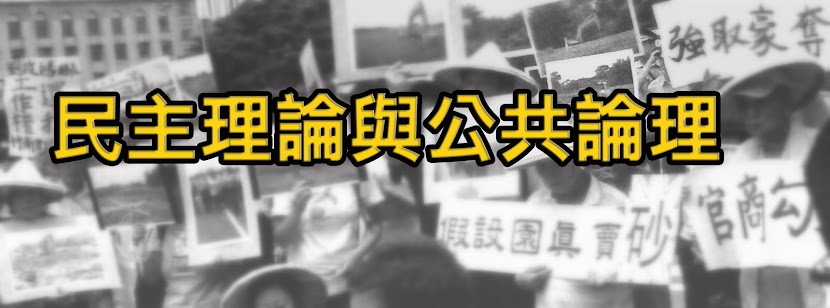時 間:2010年01月08日 晚上六點~九點半
地 點:東吳大學外雙溪校區第二教研大樓十樓
傅正研討室(D1002教室)
報告人:邱博詩(東吳大學政治系碩士班)
內 容:Thomas W. Pogge, “World poverty and human rights: cosmopolitan responsibilities and reforms” 2008 第八章 p.202~221
Ch.8 Eradicating Systemic Poverty: Brief for a Global Resources Dividend
8.0 Introduction
8.1 Radical inequality and our responsibility
一、Two ways of conceiving the global poverty as a moral challenge:
I. Fail to fulfill our “positive” duty to help persons in acute distress.
i. It’s easy to substantiate.
ii. Weaker and more discretionary moral reason
II. fail to fulfill our more stringent “negative” duty not to uphold injustice, not contribute to or profit from the unjust impoverishment of others.
i. Important for both of ourselves and the poor
二、What’s radical inequality?
①. The worse-off are very badly off in absolute terms.
②. They are also very badly off in relative terms – very much worse off than many others.
③. The inequality is impervious: it is difficult or impossible for the worse-off substantially to improve their lot; and most of the better-off never experience life at the bottom for even a few months and have no vivid idea of what it is like to live in that way.
④. The inequality is pervasive: it concerns not merely some aspects of life, such as the climate or access to natural beauty or high culture, but most aspects or all.
⑤. The inequality is avoidable: the better-off can improve the circumstances of the worse-off without becoming badly off themselves.
三、什麼情況下,上述的radical inequality被視為不正義,且違反了消極義務呢?



.jpg)
